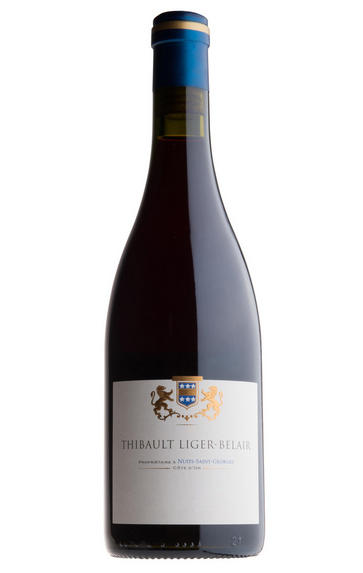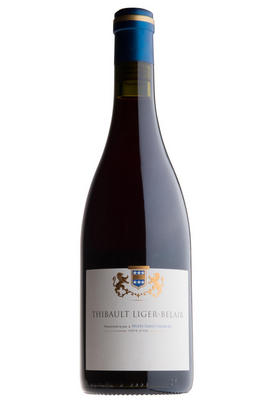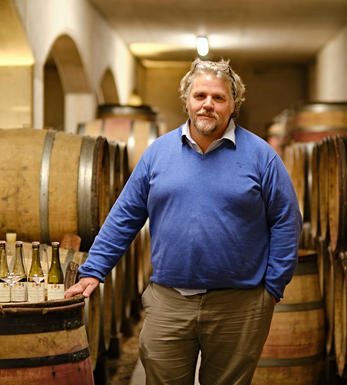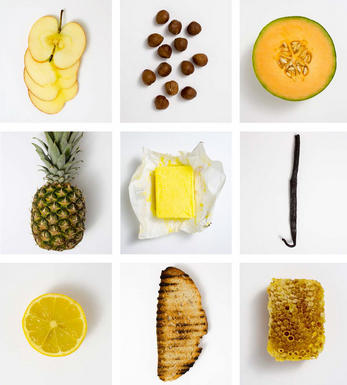
2018 Savigny-lès-Beaune, Le Clos du Village, Domaine Liger-Belair

Critics reviews
Drink 2022 - 2032
Neal Martin, vinous.com (Nov 2019)
Drink 2020 - 2026
Tim Atkin MW, Decanter.com (Oct 2019)
About this WINE

Domaine Thibault Liger-Belair
Domaine Thibault Liger-Belair is part of our Spotlight on sustainability series. You can view the full range here.
Thibault Liger-Belair is cousin to Vicomte Liger Belair of Vosne Romanée. In 2001 he took over an old family property in Nuits St Georges, taking back the vines which had been contracted out to various share croppers, and leased a cuverie just down the road. The family jewels (his branch) consist of Richebourg, Clos de Vougeot and Nuits St Georges Les St Georges, to which he has added further vineyards and a few additional cuvées made from purchased grapes.The vines are now certified organic and farmed biodynamically, with horses used to plough the vineyards where possible. The grapes are rigorously sorted on a table de tri, then destalked and fermented without much punching down or pumping over. They will be racked once during the elevage, but Thibault is not afraid of reductive flavours at this stage which, he feels, adds to the eventual substance and complexity of the wine. The oak regime is not to exceed 50% new barrels but also not to use any barrels more than three years old. The natural style of Thibault’s wines is plump and full-bodied, though the benefits of his farming methods seem to be bringing a more mineral aspect to the fruit as well.
The natural style of Thibault’s wines is plump and full-bodied, though the benefits of his farming methods seem to be bringing a more mineral aspect to the fruit as well.

Chardonnay
Chardonnay is often seen as the king of white wine grapes and one of the most widely planted in the world It is suited to a wide variety of soils, though it excels in soils with a high limestone content as found in Champagne, Chablis, and the Côte D`Or.
Burgundy is Chardonnay's spiritual home and the best White Burgundies are dry, rich, honeyed wines with marvellous poise, elegance and balance. They are unquestionably the finest dry white wines in the world. Chardonnay plays a crucial role in the Champagne blend, providing structure and finesse, and is the sole grape in Blanc de Blancs.
It is quantitatively important in California and Australia, is widely planted in Chile and South Africa, and is the second most widely planted grape in New Zealand. In warm climates Chardonnay has a tendency to develop very high sugar levels during the final stages of ripening and this can occur at the expense of acidity. Late picking is a common problem and can result in blowsy and flabby wines that lack structure and definition.
Recently in the New World, we have seen a move towards more elegant, better- balanced and less oak-driven Chardonnays, and this is to be welcomed.


Buying options
Add to wishlist
Description
For more than two decades, Thibault Liger-Belair has been following organic and biodynamic practices. He believes that winemaking starts not with the fruit, but with the soil. “We all talk about terroir, but my focus is on the soil and putting what it needs first,” Thibaut explains. His wines are pure, focused and desirable.
This is another fascinating site, surrounded by 2.5-metre high walls and a monopole of its owner, from whom Thibault buys the equivalent of four barrels. This has a seductive, spicy reduction on the nose, while the palate bursts with tropical fruit and neat, precise citrus acidity courtesy of the limestone soil. Drink now to 2024.wine at a glance
Delivery and quality guarantee